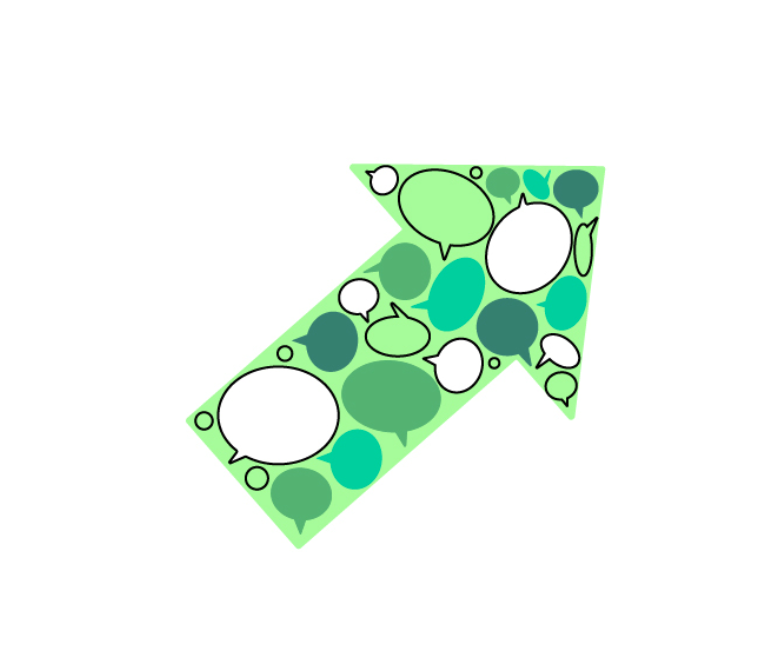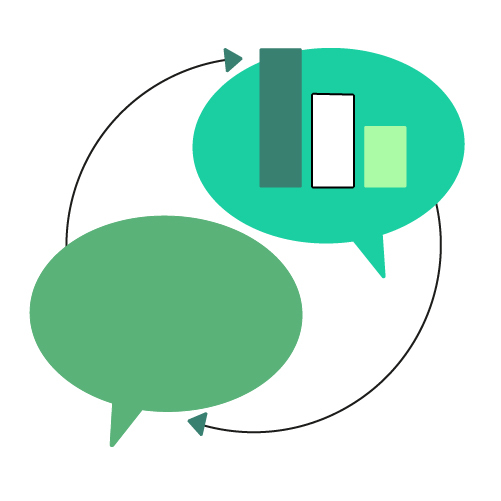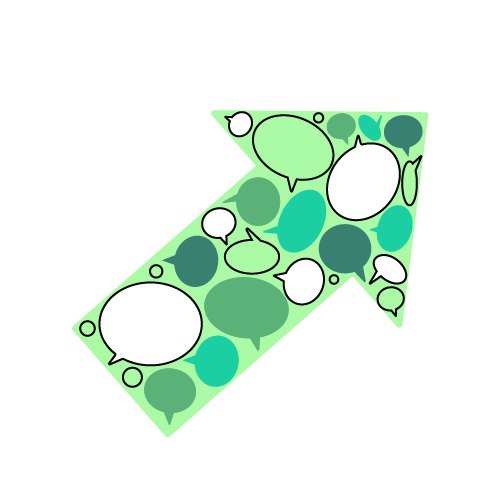
Social Science for Community Engagement in Humanitarian Action
Bridging theory and practice
Introduction
The social sciences have long had a solid connection to humanitarian action. A recent project has aimed to strengthen this further in how humanitarian actors engage communities in their work. The Social Science for Community Engagement in Humanitarian Action (SS4CE in HA) project was implemented from October 2020 to December 2022 through the support of USAID's Bureau for Humanitarian Assistance (BHA). The goal was to strengthen regional and global demand and capacity for social science integration into humanitarian programming in order to:
- Ensure engagement of affected and at-risk communities throughout the humanitarian programme cycle (HPC)
- Contribute to more adaptive, rapid, effective and efficient humanitarian action (HA)
The project was implemented in 3 phases:
- Launch phase (October 2020-December 2020)
- Discovery and consultation (Jan 2021 - June 2021)
- Setup of the project governance, global goods development, review and feedback (July 2021-December 2022)
In collaboration with more than 70 humanitarian partners across humanitarian practice and academia, the SS4CE in HA project has been aiming to facilitate community engagement of affected and at-risk communities throughout the humanitarian program cycle. The governance structure of this initiative included:
- a Strategic Advisory Group (SAG for SS4CE in HA) to act as an advisory body to inform the project’s direction as well as to provide strategic guidance to advance SS4CE in humanitarian programming. Specific emphasis on providing recommendations and guidance that facilitate the participation of affected people´s (CE) throughout all stages of the Humanitarian Programme Cycle in different humanitarian contexts (from preparedness to responding adaptively, rapidly, and accurately during humanitarian emergencies).
- three (3) Technical Working Groups (TWGs) to advise and contribute to the development of the SS4CE in HA identified Global Goods.
8 co-created global goods were collaboratively developed:
- Landscape report
- Ethics and data sharing report
- Code of Conduct mapping report
- Common Principles for data ethics and data sharing for the application of SS4CE in HA
- Mapping of capacity development for SS4CE in HA in Conflicts and Hazards
- Common Monitoring and Evaluation Framework for Community Engagement
- Compendium of case studies on the use of community engagement to inform decision-making
- Vision paper on CE for Accountability to Affected Populations (AAP) and Social and
Behaviour Change (SBC)
1. The Landscape Report
The landscape report is a product from the launch phase of the Social Science in Community Engagement in Humanitarian Action Project (SS4CE in HA) and provides the results of identified needs among key stakeholders to inform the development of the global goods under this initiative. The focus of this report is the integration of social scientists and practitioners within community engagement and humanitarian contexts. This initiative plays a key role in informing and improving the humanitarian system toward global capacity and building partnerships to include SS4CE in humanitarian programming.
2. Ethics and Data Sharing Mapping
This mapping report includes an executive summary that outlines the critical integration of quality data in community engagement (CE) in humanitarian action (HA). Data usage in humanitarian settings is often met with ethical and legal issues. The report presents information collected from consultations within a technical working group, and the key findings that focus on:
- A lack of comprehensive, high-quality baseline data;
- a need to adapt to diversity of humanitarian actors;
- a need to adapt to the context of crisis; and
- logistical and time-related challenges of ethical regulations in HA.
An executive summary is also available.
3. Codes of Conduct Mapping
This mapping report includes an introduction to Humanitarian Action (HA) as well as the existing codes of conduct (CoCs) in HA, Social science (SS) research, Community Engagement (CE) and the intersection of the three SS4CE in HA. The recommendations after reviewing the existing codes recognize outstanding gaps in the creation of a CoC for the application of SS4CE in HA at the different stages of the Humanitarian Programme Cycle (HPC).
The findings revealed that humanitarian organizations utilize general CoC's tailored to their individual priorities and disciplines.
An executive summary is also available.
4. Common Principles for Data Ethics and Data Sharing for the Application of SS4CE in HA
This report includes the common principles for ethical inclusion of social sciences for community engagement in humanitarian action (SS4CE in HA), created in partnership with SoNAR-Global, partnership with SoNAR-Global, Makerere University of Uganda, Fundación Osvaldo Cruz and members of Technical Working Group-1. The principles were developed to amplify community engagement processes and cohesively implement social sciences to inform humanitarian response in community contexts. The identified gaps in both mapping reviews led to the development of these common principles. The key recommendations from this development include investing more in community engagement through the Humanitarian Programme Cycle (HPC), developing more knowledge surrounding local leadership to develop strategies, empowering local communities through appropriate hiring practices and adequate salaries, nurturing community engagement through the exploration of power dynamics and the encouragement of participatory methods, and the implementation of responsible data collection.
An executive summary is also available.
5. Mapping of Capacity Development for the Application of SS4CE in HA in Conflicts and Hazards
This report analyzes the results of a capacity mapping and needs assessment and identifies the critical inclusion of social sciences in the process of Community Engagement (CE) and Humanitarian Action (HA). This workstream was co-convened by Sonar-Global partners AIGHD and Institute Pasteur for the Social Sciences for Community Engagement in Humanitarian Action (SS4CE in HA) project in collaboration with UNICEF’s Social and Behavior Change section. The methodology included a mixed-method approach with preliminary scoping of peer-reviewed literature as well as a survey, focus group discussions, and a mapping of training resources. The main findings concluded that
- existing trainings are mainly focused on public health and are legal oriented;
- SS4CE is integral in community decision-making and a people-focused response;
- sociology and anthropology are the most frequently used social sciences;
- the idea of a shared space with multidisciplinary approaches can create a common level of understanding;
- CE needs to be recognized and measured; and
- Coordination and knowledge exchange remains in need of improvement.
An executive summary is also available.
5.1 Competency Framework for Social Sciences for Community Engagement in Humanitarian Action
The competency framework provides a broad outline of competencies required to lead social-science informed community engagement in humanitarian action, across all phases of the Humanitarian Program Cycle. The competency framework was developed through a consultation process was conducted with social scientists and practitioners who have been working in community engagement in humanitarian action during conflicts or natural hazards.
6. Common Monitoring and Evaluation Framework for Community Engagement
This report proposes a Community Engagement M&E Framework developed by Technical Working Group-3, aims to support a standardized and effective approach to CE data that informs strategic decision-making in humanitarian programming. The M&E framework emphasizes the need for further shared learning and improved CE programmes in emergency responses while acknowledging the deficits of a structured framework in emergency settings. This report emphasizes the goal to implement CE activities in emergency settings to increase the understanding of country contexts and diversity of CE indicators. Just as definition of these terms vary across regions, so will the approaches and outcomes based on those interpretations.
7. Compendium of Case Studies on the Use of CE to Inform Decision Making
The purpose of this compendium is to reflect and reveal the variety of experiences of international organizations based on context and country specific differences and needs of CE approaches and interventions and their relevance.
The findings reveal the current state of CE data integration as well as gaps, limitations, and challenges encountered. Anticipation issues and community-specific needs can be improved using community engagement and the framework of social sciences.
The desk review report presents a review of indicators related to community engagement (CE) across 28 Human Response Plans (HRPs) in 2022, as well as a broad cross-section of documentation about CE. The desk review aimed to inform the development of the CE Common M&E Framework.
A desk-review of Community Engagement Data is also available.
8. Vision Paper on Community Engagement for Accountability to Affected Populations and Social and Behavior Change
The rationale for this vision paper is based on three main concepts outlined towards a common vision of Community Engagement (CE) to achieve Accountability to affected Populations (AAP) and Social and Behavior Change (SBC) during Humanitarian Action (HA). In an effort to improve humanitarian outcomes, a theory of change is presented to advocate for the transformation of CE for AAP across institutions and stakeholders. This paper was developed through a consultation process involving multiple humanitarian actors. The goal is to establish a common understanding on evolution of CE within the humanitarian sector, informed by the social sciences to provide aid to systematic barriers and misconceptions to improve humanitarian response.
Additional resources
You can also learn more by watching the recording of the Leveraging social sciences for community engagement in humanitarian action (HNPW 2023 AAP) webinar, during the Humanitarian Network Partners Week, 18 April 2023. This session was the first in which the outputs from the projects were showcased, exploring those that focus on concepts related to decolonization, social justice, and localization. Panellists discussed how social sciences and community engagement in humanitarian action can be implemented towards more ethical, inclusive, decolonized, social justice, and effective practices, as well as how to approach resourcing for systematically integrating social science for community engagement. Read more about the SS4CE session as well as other events during HNPW2023 on https://phap.org/hnpw2023
Coming soon! The Humanitarian Response Plan Vulnerability Assessment (HRP-VA)
The HRP-VA is a mixed-methods, rapid assessment tool developed to identify, monitor and guide the support of vulnerable populations during disasters and humanitarian crisis. The tool has been designed to allow for the strengthening of pre-existing resilience patterns and community-based responses and is intended to provide both a baseline for intervention as well as some measures to screen for increases in specific risks as well as their mitigation over time. The tool informs field-based data collection and interpretation of findings.
The HRP-VA consists of three core elements (1):
- An in-depth guidance document which provides a roadmap to implementing the tool (both regarding data collection and analysis)
- The data collection tool (containing an adaptable demographic survey, interview guide, and template for ethnographic observations in the field)
- A template for a follow-up checklist to monitor changes in local vulnerabilities, resilience patterns, and related risks to health and wellbeing
Implementation of an HRP-VA can be actioned within the framework of first-response initiatives but also take place at a later stage to improve preparedness and long-term planning.
Note that the tool and supplementary documents are currently available in English, but guidance on related tools has been produced in French and can be requested via University College London (a.volkmann@ucl.ac.uk). Similarly, other related Vulnerability Assessments (data collection tool only) are available in more than 25 languages and local dialects.





